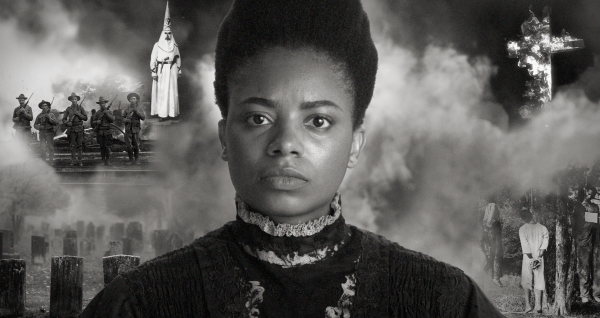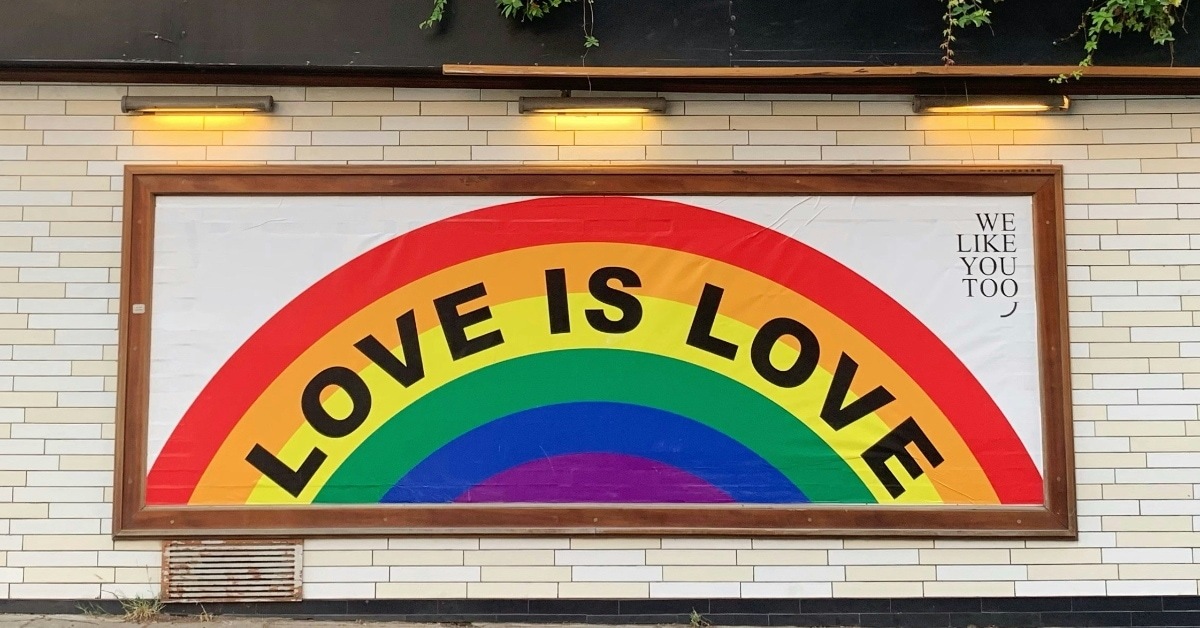‘Stamped From the Beginning’ tells the truth about our history and centers Black women
OPINION: The new Netflix documentary based on the book by Ibram X. Kendi utilizes only Black women scholars and activists to tell the story of Black America while also exploring the growth of Blackness and anti-Blackness in the United States. The post ‘Stamped From the Beginning’ tells the truth about our history and centers Black women appeared first on TheGrio.

OPINION: The new Netflix documentary based on the book by Ibram X. Kendi utilizes only Black women scholars and activists to tell the story of Black America while also exploring the growth of Blackness and anti-Blackness in the United States.
Editor’s note: The following article is an op-ed, and the views expressed are the author’s own. Read more opinions on theGrio.
Who gets to tell the story of Black American history? If our stories are told by Black people at all, the dominant voices have historically been Black men. The Netflix documentary based on the Ibram X. Kendi book of the same name, “Stamped from the Beginning,” turns that reality on its head.
Other than Kendi, who executive produced the documentary of his book alongside TV legend Mara Brock Akil, the film, directed by Roger Ross Williams, features only Black women scholars and activists — across generations, sexualities and queerness — to tell the story of our people. Featuring the legend Angela Davis, Honorée Fanonne Jeffers, Brittany Packnett Cunningham, Jennifer L. Morgan and Raquel Willis, among other Black women commentators, “Stamped” makes its mark by not only centering Black women commentators but centering Black women’s stories to paint the picture of American Blackness.
“Stamped” tells the story of Phillis Wheatley, the first Black woman to publish a book of poetry in the Americas. Using gorgeous animation, “Stamped” re-enacts the formerly enslaved 18th-century poet’s experience of being called before a group of white elite men in Boston who subjected her to their investigation to determine whether she had actually written her poems. “Every Black woman has a Phillis Wheatley moment,” where they must prove their worth and qualifications to white men and reinforce the idea that white men have the right to determine Black worth.
“Stamped” distinctly draws the line from Wheatley to Anita Hill testifying at Clarence Thomas’ Supreme Court confirmation hearings to Ketanji Brown Jackson’s Supreme Court confirmation hearings.
The documentary also centers the story of Harriet Jacobs, an abolitionist and the first Black woman to write a slave narrative, to show the horrors of slavery that were specific to Black women and Black girls. Finally, an actor reenacts Ida B. Wells’ groundbreaking independent journalism to document white mobs lynching Black people, shining a light on what white media and politicians were actively denying was happening.
Each of these moments in history and more is used to help illustrate the invention of Blackness and anti-Blackness, the invention of whiteness and the indoctrination of society into white supremacy and anti-Black inferiority in order to justify our enslavement, rape, terror and genocide.
While most documentaries that comment on this gruesome history of our brutalization feature a montage of Black death — images and videos captured over generations — “Stamped” stands apart in its presentation of the gruesomeness.
In addition to the usual still images of lynched Black people swinging above the heads of smiling white men, women and children and video footage of civil rights protestors being hosed down by police and the modern police lynchings of Eric Garner and so many others that have been included in many recent documentaries, “Stamped From the Beginning” updates the montage with awful video footage of young Jordan Neely being choked moments before his death by white vigilante Daniel Penny on the NYC subway. But unlike docs like “13th” that used audio of the Trayvon Martin 911 call where you can hear his screams before he is murdered by George Zimmerman, “Stamped” cuts out the footage before Neely dies.
Instead of showing Derek Chauvin murdering George Floyd with a knee to the neck, “Stamped” shows the witnessing crowd demanding Chauvin stop and get Floyd medical attention. We don’t have to watch the light go out of Neely’s eyes. We don’t have to hear the screams of Trayvon Martin. We don’t have to hear Floyd calling for his mother. The no-doubt deliberate choice of “Stamped” producers and director Williams to center and honor the Black audience and how these images can be retraumatizing, shows that there is a way to tell the story of the brutalization of our people without hyper-focusing on these graphic images of our lifeless bodies.
“Stamped” also explicitly calls murders by police “lynchings” and “terrorism,” in a time when too many Black leaders are working on reforming the number of Black people killed instead of abolishing police. “Stamped” also boldly takes Black leaders and other Democrat leaders to task for their roles in perpetuating anti-Blackness. President Barack Obama, Don Lemon, President Joe Biden, Hillary Clinton and President Bill Clinton all get their cards pulled with clips of them stoking anti-Blackness and creating policies like the disastrous bipartisan 1994 crime bill that continues to decimate Black and brown communities.
At a time when Black women mayors across the country — like London Breed in San Francisco and Muriel Bowser in D.C. — are pouring more resources into the police and out of the community, and Black leaders and Democrats in Atlanta like the City Council and Mayor Andre Dickens are leading a charge against the people in order to build the much contested “Cop City” and prosecute community organizers who oppose it, we need bold documentaries like “Stamped” that tell the truth not only about police but about the nationwide, bipartisan and trans-racial anti-Black efforts to disenfranchise Black people.
While the stories and histories of Black people in America might not be new information, its presentation in “Stamped” is absolutely new, commendable and should be required viewing.
“Stamped from the Beginning,” will premiere on Netflix on Nov. 15.

Brooke Obie is an award-winning critic, screenwriter and author of the historical novel “Book of Addis: Cradled Embers.”
TheGrio is FREE on your TV via Apple TV, Amazon Fire, Roku and Android TV. Also, please download theGrio mobile apps today!
The post ‘Stamped From the Beginning’ tells the truth about our history and centers Black women appeared first on TheGrio.












